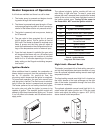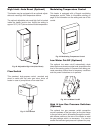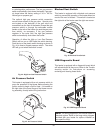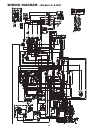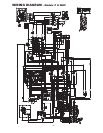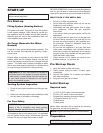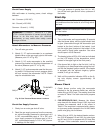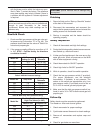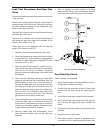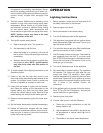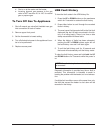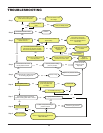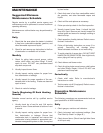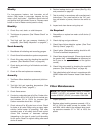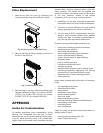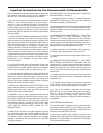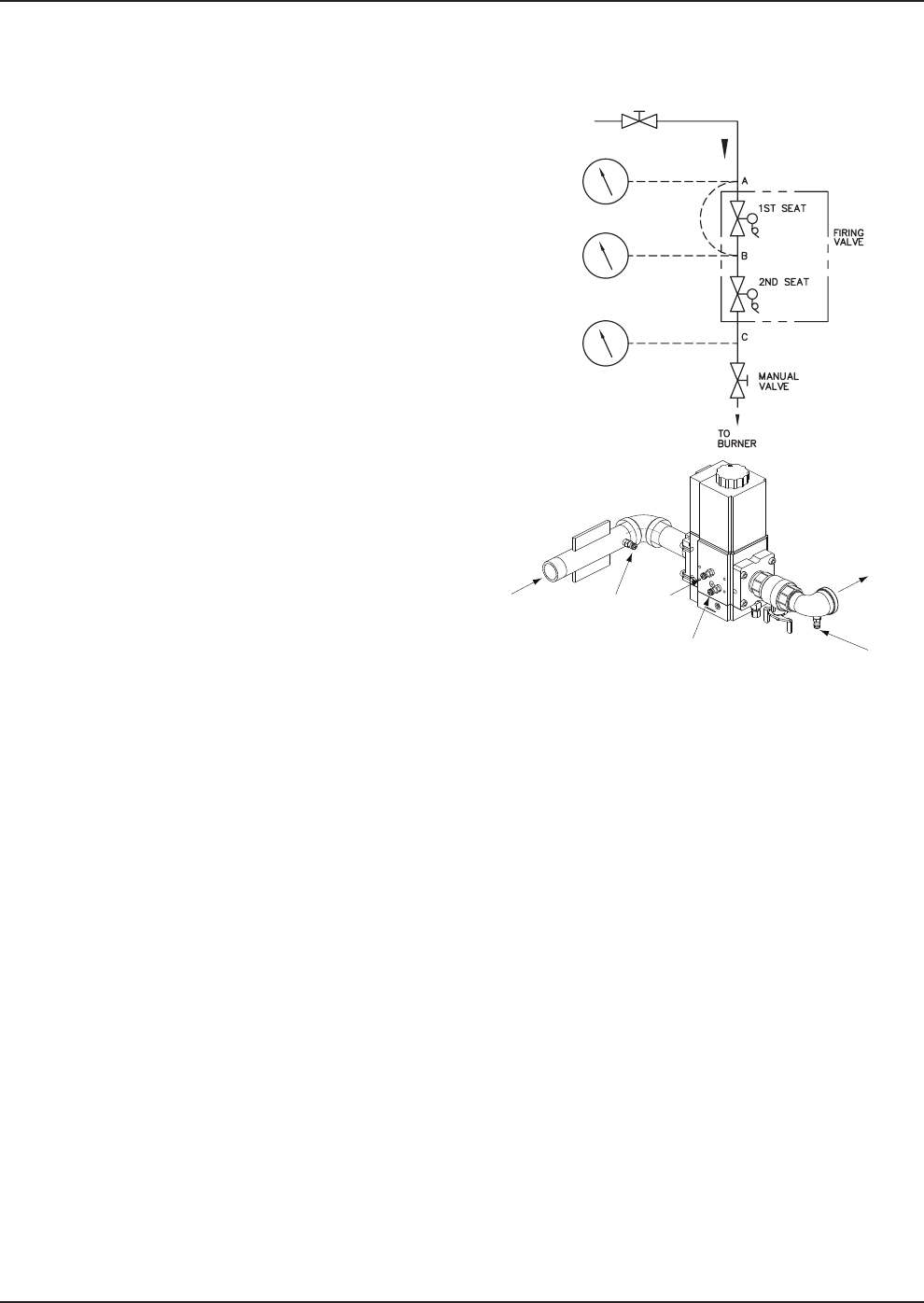
45
Leak Test Procedure: Dual-Seat Gas
Valve
P
roper leak testing requires three pressure test points
in the gas train.
Remove the access panel on the rear of the heater to
access the gas valve for this test. Test point A is a blee-
dle valve located upstream of the combination gas
valve on the supply manifold.
Test point B is a bleedle valve located between the two
automatic gas valve seats.
Test point C is a bleedle valve located downstream of
both automatic gas valve seats and upstream of the
manual valve. Refer to Fig. 49.
These tests are to be conducted with the electrical
power to the heater turned OFF.
1. Manually close the downstream leak test valve.
2. Open the bleedle valve at test point A and connect
a manometer to it. Verify that there is gas pressure
and that it is within the proper range (NOTE: must
not exceed 14.0 in. WC).
3. Open test point B and connect a rubber tube to it.
Connect the other end of the tube to a manometer
and look for a build-up of pressure. Increasing
pressure indicates a leaking gas valve which must
be replaced.
4. Next, close the upstream manual gas valve (field
supplied) and remove the manometers from the
bleedle valves in test point A and test point B.
Connect a rubber tube from the test point A blee-
dle valve to the test point B bleedle valve and
open the upstream manual gas valve. Make sure
that test point A & B bleedle valves have been
opened so as to allow gas to flow. This will bring
gas pressure to the second valve seat.
5. Open the bleedle valve at test point C and connect
a second rubber tube to it. Connect the other end
of the tube to a manometer and look for a build-up
of pressure. Increasing pressure indicates a leak-
ing gas valve which must be replaced.
6. Remove rubber tube and manometers. Close
each test point bleedle valve as the tubes are
removed.
7
. After no leakage has been verified at all valve
seats and test valves, open downstream leak test
valve and restore electrical power to the heater.
Post Start-Up Check
Check off steps as completed:
1. Verify that the heater and heat distribution units or
storage tank are filled with water.
2. Confirm that the automatic air vent (if used) was
opened two full turns during the venting proce-
dure.
3. Verify that air has been purged from the system.
4. Verify that air has been purged from the gas pip-
ing, and that the piping has been checked for
leaks.
5. Confirm that the proper start-up procedures were
followed.
6. Inspect burner to verify flame.
7. Test safety controls: If heater is equipped with a
low water cut-off or additional safety controls, test
Fig. 49: Leak Test Procedure
GAS
TO BURNER
A
B
C
D



